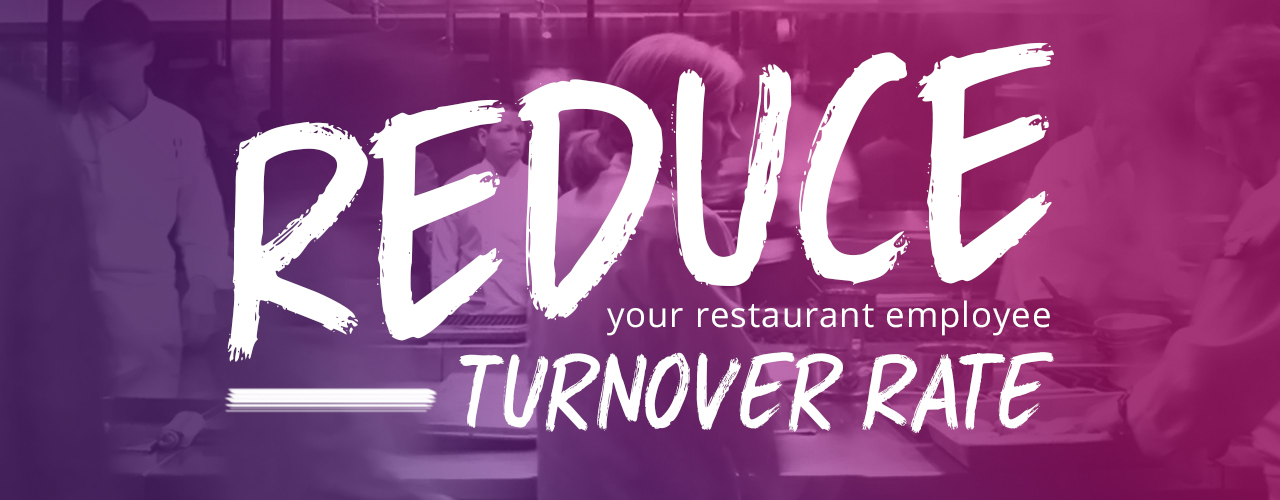
How to Reduce Your Restaurant's Employee Turnover Rate
Last updated on Aug 25, 2025Restaurants often struggle with a high rate of employee turnover. While it's inevitable to bid farewell to some staff members, there are effective ways to promote team satisfaction and retention. In this article, we will explore the primary reasons behind employee departure in the restaurant industry and provide strategies to increase job satisfaction and longevity.
Why Is Employee Retention Important?
An employee leaving your business, even if they've only been there for a day, usually costs you about twice that employee's salary to replace them. Therefore, a bad hire negatively impacts your budget while leaving you with the same staffing need to fill. Other employees must take on extra tasks and shifts to compensate, leading to stress and frustration.
Frequent employee turnover also affects your workplace culture, preventing you from building camaraderie and a valuable knowledge base about your operation within your staff. Long-tenured employees share their experience and knowledge of your restaurant with new staff members, keeping customer service seamless. One staff member leaving might also cause other employees to question their job security or act as the final push for other employees to follow suit.
Tips for Reducing Employee Turnover in Your Restaurant
Every member of your staff is an individual with unique strengths and weaknesses. Pay close attention to where each person struggles and excels. No one-size-fits-all solution exists to keep everyone happy, but there are a handful of common reasons why people leave their jobs. By working to address some of those things before they become a problem, you have a better chance of building a team that lasts.
1. Address Every Person's Unique Needs

Whether it's their first day or their tenth year at the restaurant, try to show every staff member that they are a valued part of the team.
- Get Off to a Good Start: Not everyone responds well to a “sink-or-swim” introduction. Try to understand which employees will benefit from detailed training vs. people who learn best from figuring things out themselves.
- Nurture Long-Term Goals: Provide opportunities for growth and advancement.
- Open Conversations: Check in regularly with each staff member to ensure they’re happy at work. Try to resolve any issues they bring to your attention.
- Pay for Classes and Trainings: Paying for your employees to gain outside knowledge and experience, like ServeSafe certifications, is a great incentive for them to stick around while providing your business with knowledgeable personnel. Gaining new skills that they can apply to their daily tasks can also help people find value in their work.
- Provide Your Staff with Uniforms: Create a unified and professional staff appearance by providing your employees with high-quality uniforms. Not only can you ensure that they look the part, but you can also check that the uniforms are comfortable and allow them to do their jobs to the best of their ability. It can also remove a financial burden if you pay for your staff's uniforms rather than asking them to purchase them.
- Create a Hierarchy with Room to Grow: By providing a hierarchical ladder in your restaurant, your staff would be motivated to stay with your business longer as they strive toward a goal. Your hierarchy might look like this: server, server trainer, lead server, shift supervisor/keyholder.
- Shift Meal: Offering free food can improve morale and, as a bonus, will familiarize your staff with the menu so they can have informed conversations with customers. Providing each person with one free meal per shift is a win-win.
- Throw Fun Group Activities: Invest in small group activities or holiday celebrations, even if it’s as simple as closing shop on Labor Day to take your staff on a picnic in the park. These gestures can go a long way toward making your employees feel appreciated.
- Employee of the Year: You can offer an incentive for staff members that are voted employee of the year, such as a privileged parking spot, a plaque in the dining area, or a gift card. Announce the winner around the holidays to bring additional cheer to the end of the year.
- Hold Sales Contests for Servers: Create healthy competition by keeping track of sales and giving a prize to the server that sells the most of a menu item, such as a special cocktail or dessert. You can hold this once a week or once a month.
- Respect their personal lives, including pre-existing obligations that might prevent them from picking up extra shifts.
- Encourage their goals as they pursue a degree.
- Be flexible, especially if they have to alter their schedule to study for exams.
- Schedule monthly check-ins with employees to understand their frustrations.
- Address any problems as promptly as possible, which will show employees that you support them.
- Create an open-door policy to encourage your staff to share any issues.
- Address raises with every employee on an annual basis, including expectations on how raises are issued.
- Offer appropriate raises to employees based on established criteria.
- Ensure salary increases reflect exemplary work performance.
- Offer management training that covers duties, leadership, and specific details about your operation.
- Conduct annual reviews and set goals for the coming year.
- Provide opportunities for feedback from staff.
- Ask questions about candidates' interests in interviews to see if they'll fit with your existing staff.
- Encourage your existing staff to recommend their friends for vacant positions.
- Offer a shadowing opportunity for new candidates and observe their interactions with your staff before hiring.
- Invest in a Digital Platform: Effective management requires juggling many priorities at once, which makes it tough to give employees individual attention. Team management apps like Connecteam help to streamline everyday processes so your managers have more time for one on one engagement with your staff.
- Help Them Prioritize: Understand that a management role can be overwhelming. Instead of adding more pressure, listen to their side of the story and help your manager reach a solution that will work for everyone.
- Set Clear Expectations: Managers can’t do their job if they don’t understand your expectations. Similarly, they can’t help your business succeed if you constantly change your mind. Take a logical approach to your business goals and keep your expectations clear and attainable.
- Listen to Their Suggestions: You don’t need to implement all their ideas, but keep an open mind and try a few promising ideas. If you decide one of their suggestions won’t work for your business, explain why.
- Ask for references and check them.
- Check their resume for frequent job changes.
- Be strategic about your interview questions.
- Don’t settle for the first person to apply. Try to get a feel for whether or not they fit your culture and if they have the skills and responsibility necessary to tackle all the daily tasks.
2. Invest in Your Staff
Most employees will move to new jobs for financial reasons. Paying your staff a competitive wage and increasing their earnings over time reduces the chance of high turnover. However, there’s more to a workplace than just a paycheck. Encouraging growth and creating a safe and fun atmosphere go a long way toward the happiness of your employees.
3. Offer Free Incentives for Your Employees
There’s more to a likable job than making money. Creating a safe and happy work environment where people feel heard and appreciated goes a long way toward improving your company culture.
Why Is There Such a High Staff Turnover Rate in the Restaurant Business?
While every work environment is different, some challenges are especially prevalent among restaurants that lead to employee turnover. However, you can mitigate many of these issues with some extra effort.
Teenage or Student Employees

Restaurants, especially fast casual establishments, are many people’s first jobs. Numerous servers are doing the job to support themselves while they finish school or supplement other income. When you hire students as staff members, accept that they have irregular schedules with limited availability. While moving on is often part of their personal growth, there are a few things you can do to encourage them to stay.
High-Pressure Environments
Foodservice is challenging, and customers aren’t always kind. If your restaurant serves hundreds of patrons daily, you’re bound to encounter some unpleasantness at some point. This environment might encourage your employees to quit in favor of a less stressful job, so try these tactics to counter the pressure of their job.
Unsatisfactory Wages
The most common reason people seek new employment relates to monetary concerns. While you can’t always compete with whatever new horizons your employee pursues, you can keep track of changes in appropriate compensation in your area.
Inadequate Management
If your manager is inexperienced or doesn't have the support they need, the effects of dysfunctional management can trickle down to the rest of your staff. Without a well-equipped manager, your whole restaurant will struggle. However, these options will provide managers with the tools they need to do their jobs.
Not a Good Culture Fit
Restaurant employees get to know each other pretty well through time spent cleaning after a shift or hours spent chatting while doing prep work. It's vital to ensure your new hires don't feel like outsiders entering a clique. Furthermore, new hires should not negatively affect an otherwise positive workplace culture.
Retaining Restaurant Management

Your manager is the key to a happy and functioning staff. Here are a few ideas to help your restaurant manager succeed:
How Can I Hire the Right People in the First Place?
There’s an art to interviewing prospective employees. It’s partly intuition and partially practice. However, implementing an interviewing strategy will help you find the right people quickly.
While there’s no guaranteed way to keep your employees, these solutions can help your staff feel invested in your business. Listen to their frustrations and suggestions and treat each person as an individual with unique needs, especially during their training period. Provide fair compensation, give raises as appropriate, and provide extra incentives like staff meals and holiday celebrations to improve staff loyalty. Start implementing techniques to keep your best employees content, allowing your business to thrive.





